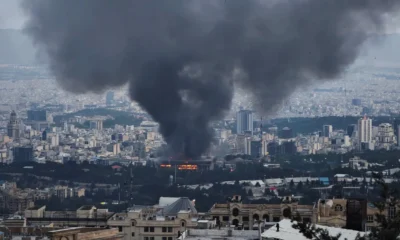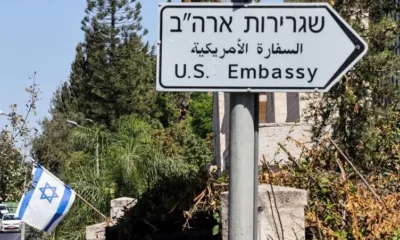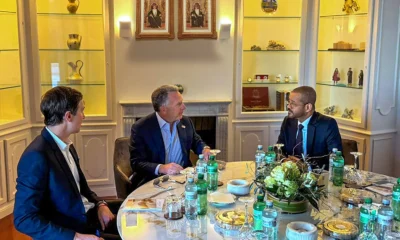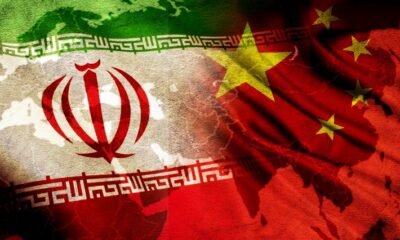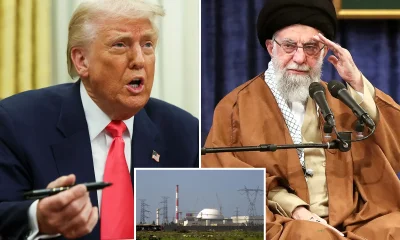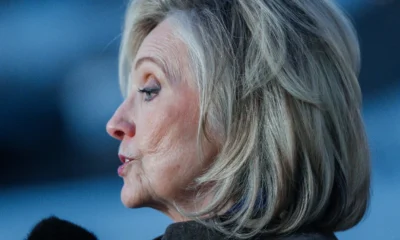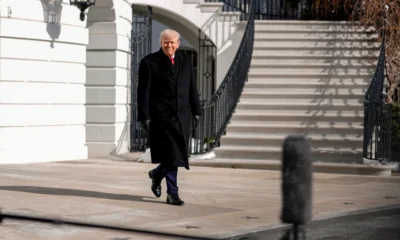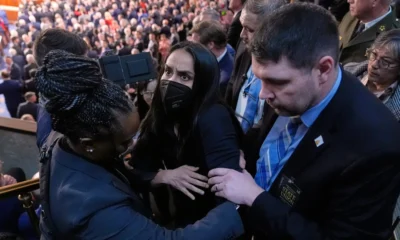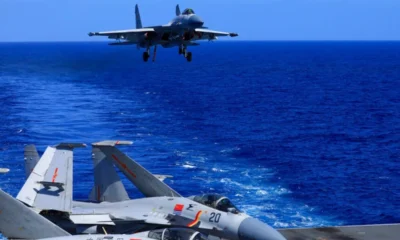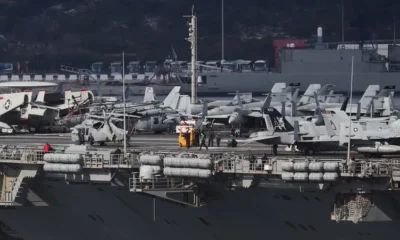Top stories
Comey’s Seashell Controversy: From Beach Walk to Federal Investigation
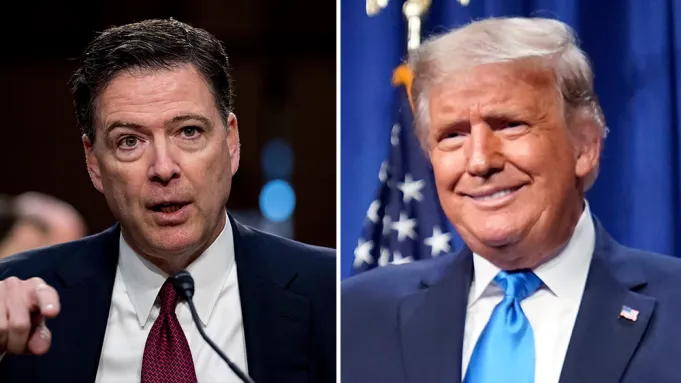
Former FBI Director James Comey faces Secret Service probe after cryptic Instagram post triggers assassination fears from Trump allies.
James Comey’s now-deleted “8647” seashell post on Instagram sparks outrage among Trump loyalists, who claim it incites violence. Secret Service opens investigation as political tensions explode online.
A beach photo. A string of numbers. A nation on edge. Former FBI Director James Comey is under Secret Service investigation after posting an image of seashells arranged to read “8647” — a number combination Trump supporters and officials are calling a thinly veiled call to assassinate the 47th president, Donald J. Trump.
Comey claimed it was a random find during a beach walk. But the internet saw otherwise. In slang, “86” can mean “get rid of” — or worse, “kill.” Combine that with “47,” Trump’s presidential number, and a storm was inevitable. Homeland Security Secretary Kristi Noem called it “a call for assassination,” while Trump allies exploded across social media, accusing Comey of inviting violence. “Disgraced former FBI Director James Comey just called for the assassination of Trump,” Noem tweeted.
The Secret Service confirmed it is taking the post “very seriously.” Though Comey quickly deleted the image and claimed ignorance — saying, “I didn’t realize some folks associate those numbers with violence” — the political firestorm is already out of control. Even Trump’s son jumped in: “James Comey causally [sic] calling for my dad to be murdered,” Trump Jr. wrote.
The timing couldn’t be worse. Trump is touring the Middle East, and security officials are hyper-alert following two assassination attempts in the past year. White House Deputy Chief Dan Scavino accused Comey of “a plea to terrorists.”
This isn’t Comey’s first collision with Trump. He was fired during the probe into Russian interference in the 2016 election — and the animosity never cooled. But this incident, laced with coded numbers and political paranoia, could mark a new low in post-presidency hostility.
Whether it was coincidence or provocation, the seashell post may have sandblasted the thin line between digital free speech and perceived threat. And as America enters another explosive election season, that line just got even blurrier.
Top stories
US–Israel Strike Iran, Region Erupts as Missiles Hit Riyadh
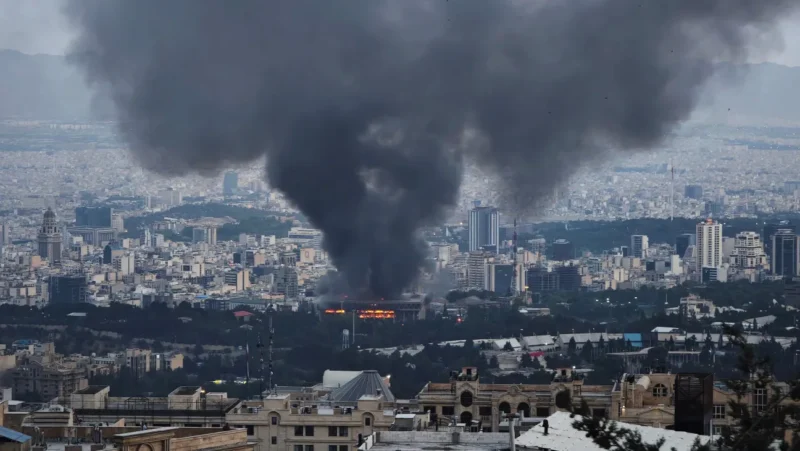
Tehran hit. Riyadh targeted. Missiles flying across borders. Is the Middle East entering a full-scale war?
The United States and Israel launched coordinated military strikes on Iran on Saturday, targeting what officials described as senior leadership and strategic security sites, triggering a rapid and dangerous escalation across the Middle East.
Explosions were reported in Tehran as the joint operation unfolded. President Donald Trump said the action was intended to eliminate a direct security threat to the United States and open space for political change inside Iran.
Tehran denounced the strikes as “unprovoked and illegal,” vowing consequences. Within hours, Iran launched retaliatory missile attacks against Israel and several Gulf countries hosting American military bases.
Saudi Arabia confirmed that missiles struck Riyadh and parts of its Eastern Province but said its air defenses repelled the attacks. The Saudi foreign ministry issued a sharp condemnation, describing the strikes as “blatant and cowardly Iranian attacks.”
“In light of this unjustified aggression, the Kingdom affirms that it will take all necessary measures to defend its security and protect its territory, citizens and residents,” the statement said, adding that retaliation remains an option.
The rapid exchange marks one of the most direct confrontations between Washington and Tehran in decades. The scope of the US-Israeli strike has not been fully detailed, but officials indicated that key security targets were hit.
Iran’s response broadened the battlefield, drawing Gulf states into the crisis. Several countries in the region host significant US military installations, raising fears of further strikes.
Regional governments are now on high alert. Air defense systems have been activated across multiple capitals, and commercial aviation routes are being reassessed as security conditions deteriorate.
Diplomatic channels appear strained. There has been no immediate indication of emergency talks, though international leaders are expected to push for de-escalation.
With missiles exchanged and capitals targeted, the conflict has shifted from brinkmanship to open confrontation. The coming hours may determine whether this remains a contained military exchange — or evolves into a broader regional war.
Top stories
Macron Signals Nuclear Shift as Europe Questions U.S. Shield

French President to Outline Deterrence Strategy at Submarine Base Amid Doubts Over American Nuclear Guarantees.
President Emmanuel Macron will travel Monday to France’s top-secret Île Longue submarine base to deliver a major speech on the country’s nuclear doctrine — a signal that Europe’s security landscape may be entering a new and uncertain phase.
The base, home to France’s four nuclear-armed submarines, provides a stark backdrop. Each vessel carries up to 16 M51 intercontinental ballistic missiles equipped with multiple warheads. As France’s commander in chief, Macron alone holds the authority to order their use.
The timing is significant. Russia’s war in Ukraine grinds on, Moscow has lowered its threshold for nuclear retaliation, and China and North Korea are expanding their arsenals. At the same time, questions have surfaced in parts of Europe about whether the United States would risk its own cities to defend European capitals under President Donald Trump.
For decades, U.S. nuclear weapons stationed in Europe formed the backbone of NATO’s deterrence strategy. But some European officials now speak more openly about contingency planning.
Rasmus Jarlov, chair of Denmark’s parliamentary defense committee, voiced the concern bluntly. “If things got really serious, I very much doubt that Trump would risk American cities to protect European cities,” he said, adding that Europe may need to look to France in the short term.
France is the European Union’s only nuclear-armed member. Macron previously stated in 2020 that France maintains fewer than 300 warheads — a stockpile he said was sufficient to inflict “absolutely unacceptable damage” on any state threatening France’s “vital interests,” which he noted have a “European dimension.”
Defense analysts will be listening carefully for signals of change: whether Macron expands the definition of France’s protective umbrella, increases cooperation with European partners, or hints at adjustments to arsenal size or deployment.
Germany has already opened discussions. Chancellor Friedrich Merz has acknowledged “initial talks” about nuclear deterrence, even publicly floating the idea that German aircraft could one day carry French nuclear weapons.
The language of deterrence is intentionally ambiguous, designed to keep adversaries guessing. But even subtle shifts in tone matter. With just 14 months left in his presidency, Macron’s remarks could shape Europe’s security doctrine for years to come.
As uncertainty clouds transatlantic guarantees, one question hangs over the Atlantic: if America’s shield weakens, will France’s nuclear force step into a broader European role?
Top stories
Hillary Clinton Clashes With GOP in Heated Epstein Testimony
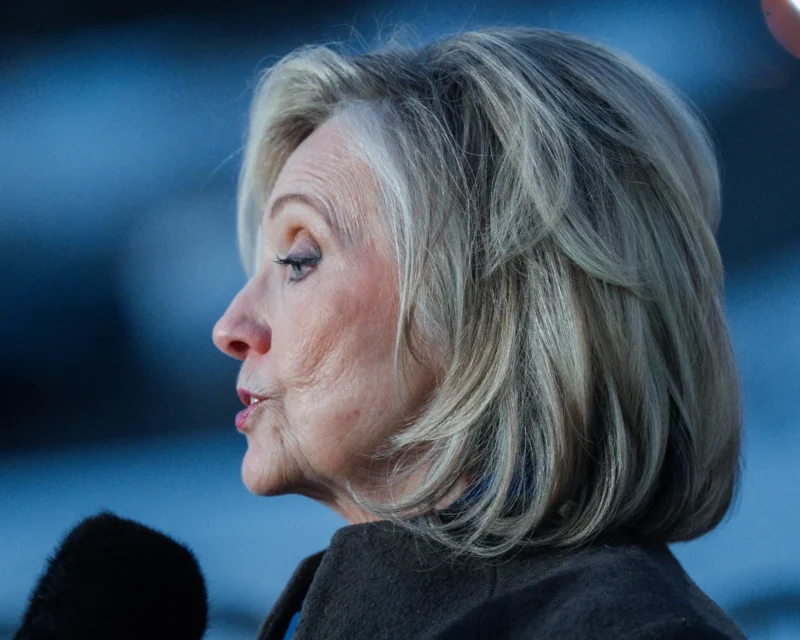
From Epstein to UFOs — what really happened inside Hillary Clinton’s closed-door testimony?
Hillary Clinton spent hours behind closed doors before a House oversight committee investigating her alleged links to Jeffrey Epstein — and emerged accusing Republicans of staging a political distraction aimed at shielding former President Donald Trump.
The former secretary of state flatly denied knowing Epstein or visiting any of his properties. “I did not know Jeffrey Epstein,” she told reporters afterward. “I never went to his island. I never went to his homes. I never went to his offices.”
Clinton argued the Republican-led inquiry was less about uncovering facts and more about diverting attention. “What is being held back? Who is being protected? And why the cover-up?” she asked.
The session, held privately at the committee’s request, grew contentious at several points. Clinton said members repeated the same questions “over and over again,” before the discussion took what she described as an unusual turn. “I started being asked about UFOs,” she said, along with questions tied to the debunked “Pizzagate” conspiracy theory.
The hearing was briefly suspended after Representative Lauren Boebert leaked a photo from the closed session, which was later posted on social media by a conservative influencer. Clinton’s legal team objected, noting that photography is prohibited during private depositions. “We had agreed upon rules,” Clinton said. “One of the members violated that rule.”
Democrats on the committee countered that the investigation should focus on Trump and Commerce Secretary Howard Lutnick, who have both acknowledged past contact with Epstein. Representative Robert Garcia said Trump should testify under oath regarding his ties. Committee Chair James Comer dismissed the idea of subpoenaing the former president but left open the possibility regarding others.
Epstein, a convicted sex offender, died in jail in 2019 while awaiting trial on federal trafficking charges. Recently released Justice Department documents have renewed scrutiny of his network of prominent associates.
Clinton also defended her husband, former President Bill Clinton, who is scheduled to testify. She said she is “100% confident” he was unaware of Epstein’s crimes during their past social interactions and that his connection ended years before Epstein’s criminal conduct became public.
Transcripts and video from both testimonies are expected to be released, setting the stage for further political fallout in a case that continues to entangle high-profile figures across party lines.
Top stories
Young Woman Killed in Balcad Sparks Outrage

A village. A water run. Gunfire. Now a family is refusing burial until answers come.
A 24-year-old woman was shot dead in a rural village outside Balcad, triggering allegations of sexual assault by Somali government forces and renewed calls for an independent investigation.
The victim, identified by relatives as Naley Buurow Nuune, was killed on February 7 in Garas Diinle village in the Middle Shabelle region. Family members told local media that she had gone to collect water from a neighbor when she encountered soldiers operating in the area.
The forces accused include local units stationed in Balcad under District Commissioner Qasim Ali Nur, known as “Qasim Furdug,” as well as Turkish-trained Gorgor commandos reportedly deployed nearby. The Gorgor units are led by Sahid Jama Farah, widely known as “Sahid Jareere.”
Relatives allege that soldiers attempted to sexually assault Naley. A young boy who had accompanied her reportedly fled after gunfire broke out. The family says she was first shot in the arm, then assaulted, and later fatally shot in the back. They claim a bullet entered through her back and exited through her chest.
Her body was transported to Madina Hospital in Mogadishu. A medical report dated February 8 confirms she was brought in deceased, citing gunshot wounds as the cause of death and noting fatal bleeding. The report does not reference findings related to sexual violence.
Naley’s body remains in the hospital mortuary. Her family has refused burial, demanding accountability and a transparent investigation.
A clan elder from Middle Shabelle, Hussein Xaadoole, said one suspect was initially detained after a mobile phone allegedly belonging to him was found at the scene. He claimed the suspect was later released following intervention by a senior commander. These allegations have not been independently verified.
The Federal Government of Somalia, the Gorgor command, and the Balcad district administration have not publicly responded to the accusations.
The case has heightened tensions in Middle Shabelle, where security operations against Al-Shabaab have intensified in recent months. For Naley’s family, however, the focus remains clear: they want answers — and justice.
Top stories
Ilhan Omar’s Guest Arrested After Standing During Trump Speech
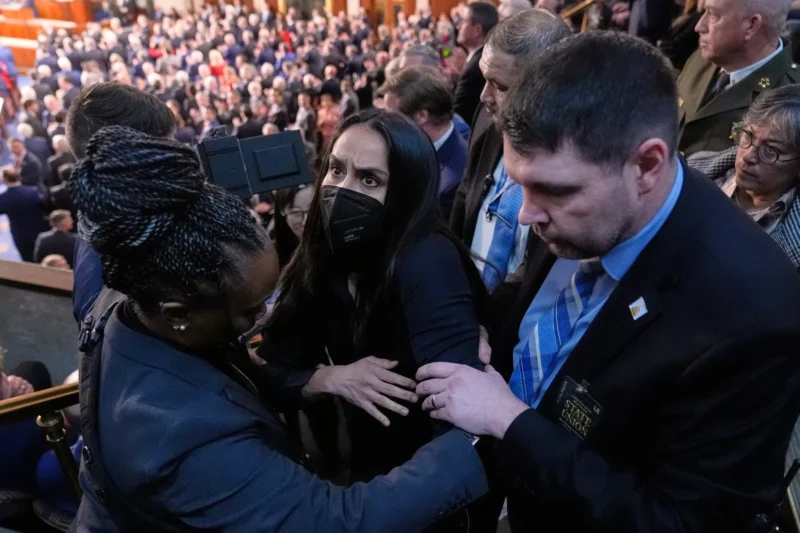
he says she stood silently. Police say she broke the rules. So what really happened in the gallery?
A guest of Representative Ilhan Omar was arrested inside the U.S. Capitol after standing during President Donald Trump’s State of the Union address, setting off a dispute over protest, procedure and free expression in Congress.
Aliya Rahman, a Minneapolis resident invited by the Minnesota Democrat, was taken into custody by Capitol Police after she stood during the president’s speech. Authorities said she violated event rules that prohibit demonstrations in congressional buildings.
“The guest was told to sit down, but refused to obey our lawful orders,” Capitol Police said in a statement. She was charged with unlawful conduct and disruption of Congress.
Rahman, however, said she did not shout, gesture or display any sign. Speaking to Democracy Now, she described standing silently in response to comments she considered offensive. “There are only two things you can do at the State of the Union,” she said. “Sit down and stand up.”
Police maintained that standing in defiance of instructions constitutes prohibited conduct, regardless of whether the protest is silent. “It’s not allowed. She was told to sit. She refused. It’s simple,” a spokesperson said.
Rahman’s presence at the event carried added symbolism. In January, she was forcibly removed from her car by federal immigration officers in Minneapolis during enforcement operations. She later said she suffered shoulder injuries in the encounter. According to Omar’s office, Rahman warned officers at the Capitol about those injuries before being escorted out. She was later treated at George Washington University Hospital before being booked.
Omar called the arrest “heavy-handed” and demanded a full explanation. “The heavy-handed response to a peaceful guest sends a chilling message about the state of our democracy,” she said.
During the speech, President Trump defended his immigration crackdown and criticized sanctuary city policies. Omar, from the House floor, shouted: “You have killed Americans.” Lawmakers themselves were not subject to arrest under constitutional protections afforded to members of Congress.
Rahman said she would tell elected officials that their responsibility is to improve lives, not “construct enemies.” By Wednesday, Omar said her guest was “back and safe.”
The incident has added another flashpoint to an already charged political climate — one where even standing up can spark national controversy.
Top stories
Rubio Faces Cuba Backlash at Caribbean Summit
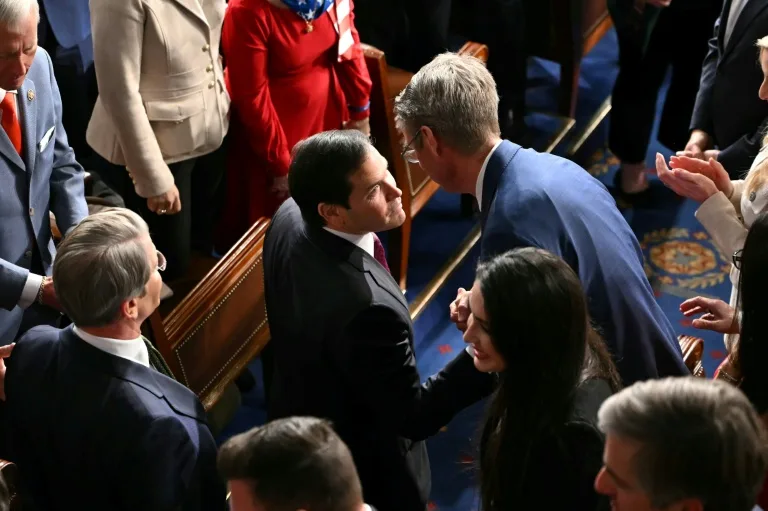
Cuba’s crisis deepens. Caribbean leaders warn of instability. Rubio arrives with pressure — and questions follow.
US Secretary of State Marco Rubio met Caribbean leaders on Wednesday amid rising regional anxiety over Washington’s renewed pressure on Cuba.
Rubio, a longtime critic of Havana’s communist government, joined the CARICOM summit in Saint Kitts and Nevis as the Trump administration escalates its Western Hemisphere strategy. His visit follows US actions in Venezuela that have disrupted oil shipments to Cuba, worsening fuel shortages and rolling blackouts on the island.
Jamaican Prime Minister Andrew Holness warned that further deterioration in Cuba could destabilize the wider Caribbean and fuel migration — a key concern for President Donald Trump.
“Humanitarian suffering serves no one,” Holness said, urging dialogue between Washington and Havana to promote “de-escalation, reform and stability.”
Summit host Terrance Drew, prime minister of Saint Kitts and Nevis, echoed the concern, saying a destabilized Cuba would affect the entire region. He cited worsening food shortages and power outages described by contacts on the island.
The United States has maintained sanctions on Cuba for decades. Under Trump, Washington has signaled readiness to intensify measures, including potential penalties for countries trading oil with Havana. However, some tougher proposals — such as restricting remittances — have not yet been enacted.
Rubio’s agenda also includes sustaining cooperation on Haiti and Venezuela. Trinidad and Tobago’s Prime Minister Kamla Persad-Bissessar openly backed US intervention in Venezuela, crediting Washington’s actions with curbing narcotics trafficking and reducing violence in her country.
But divisions were visible. While some leaders called for humanitarian relief for Cuba, others criticized regional silence over authoritarian governance in Caracas and Havana.
For Caribbean states, the balancing act is delicate: maintaining close ties with Washington while avoiding instability in neighboring Cuba. For Rubio, the summit is a test of how far US pressure can go without fracturing regional support.
Top stories
Herzog Lands in Addis, Opens Visit at Adwa Memorial
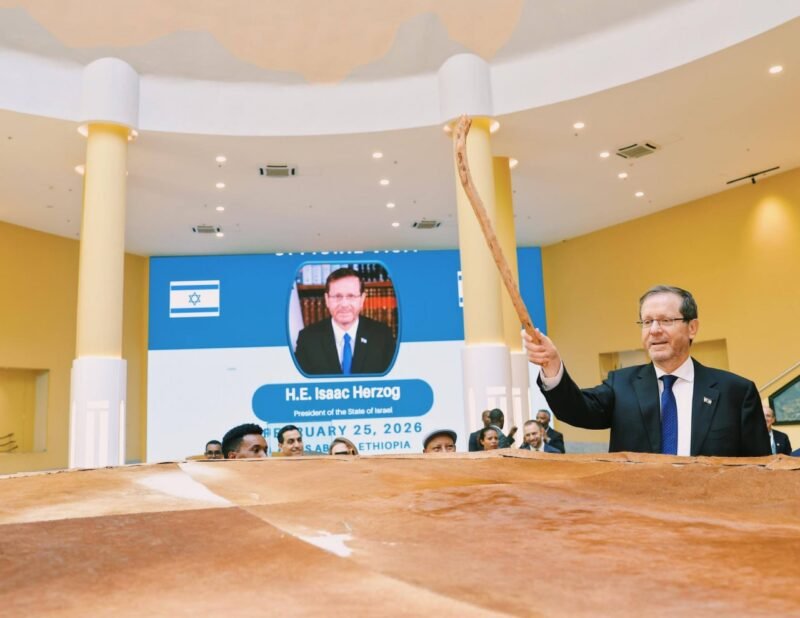
From Bole Airport to the Adwa Victory Memorial, Herzog’s first stop in Addis sends a symbolic message.
Israeli President Isaac Herzog arrived in Addis Ababa early Wednesday for an official visit aimed at strengthening diplomatic and strategic ties between Israel and Ethiopia.
Herzog was received at Bole International Airport by Ethiopia’s Foreign Minister Gedion Timothewos and State Minister Ambassador Berhanu Tsegaye, marking the start of a visit focused on expanding cooperation between the two countries.
Shortly after his arrival, Herzog visited the Adwa Victory Memorial Park, a symbolic gesture highlighting Ethiopia’s historic resistance against colonial rule. Guided through the museum complex, the Israeli president paid tribute to the 1896 Battle of Adwa, where Ethiopian forces defeated an invading Italian army — a defining moment in African anti-colonial history.
The visit to Adwa was widely seen as a diplomatic signal of respect for Ethiopia’s sovereignty and national pride. The memorial stands as a powerful symbol of independence, unity and resilience, themes that resonate strongly in Ethiopian political discourse.
During his stay, Herzog is expected to hold high-level talks with senior Ethiopian officials. Discussions are anticipated to focus on strengthening bilateral cooperation across security, technology, agriculture and economic development.
Israel and Ethiopia share longstanding ties rooted in historical, cultural and security connections. In recent years, both governments have sought to deepen engagement amid shifting regional dynamics in the Horn of Africa and the Middle East.
Herzog’s visit comes at a time of heightened geopolitical realignment across the region. Officials from both sides have framed the trip as an opportunity to reinforce mutual interests and expand strategic collaboration.
For Addis Ababa and Jerusalem alike, the optics of the visit — beginning at Adwa — underscore a message of partnership grounded in respect for sovereignty and shared strategic priorities.
Top stories
Lasanod Police Detain Journalists, Force Apology Video
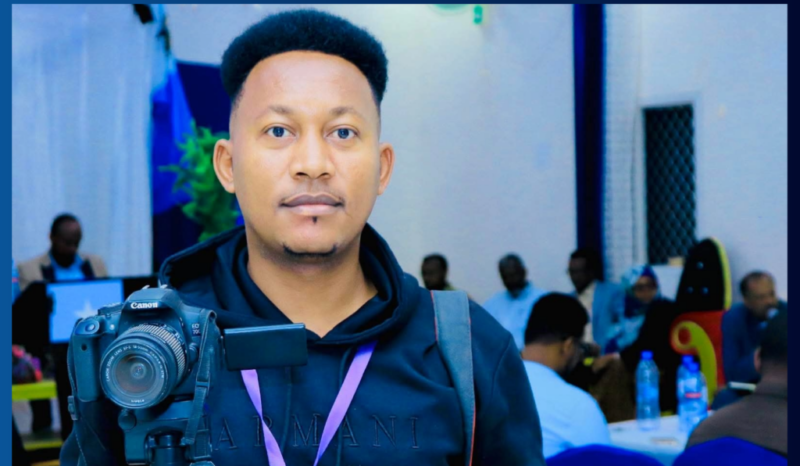
Detained. Cameras seized. Videos erased. One journalist forced to apologize on camera. Press freedom in Lasanod under pressure.
Police in Lasanod have detained two journalists, confiscated equipment and forced the deletion of published content, prompting sharp condemnation from the Somali Journalists Syndicate (SJS).
On February 21, officers detained Raxanreeb Media reporter Abdirisaq Abdirahman, known as Kobciye, after his outlet aired a video in which construction laborers complained about low wages and alleged that foreign workers were undercutting local jobs.
According to Kobciye and Raxanreeb founder Farah Atto, police trailed the journalist, raided his office in central Lasanod and seized three cameras and two laptops. Officers later went to his home and allegedly harassed family members.
After spending three days in hiding, Kobciye was taken to a police station where, he said, he was forced to delete the video from Raxanreeb’s Facebook platform and record an apology message. The video was later posted on a page linked to police authorities.
Kobciye told SJS he was coerced into making the recording and informed he would not be released unless he complied.
On the same day, Halbeeg Media journalist Mowliid Ismaaciil was briefly detained after filming protests against an alleged forced eviction tied to the city’s mayor. He was released after two hours, and his footage was deleted.
SJS Secretary General Abdalle Ahmed Mumin described the incidents as “blatant violations of press freedom,” accusing authorities of abusing their power to silence reporting on matters of public interest.
The media rights group called on local authorities to return confiscated equipment, halt interference with journalists’ work and hold responsible officials accountable.
The detentions come amid heightened political tensions in the region, raising renewed concerns over the safety and independence of journalists operating in Lasanod.
-

 Minnesota2 months ago
Minnesota2 months agoFraud Allegations Close In on Somalia’s Top Diplomats
-

 Somaliland1 month ago
Somaliland1 month agoF-35s Over Hargeisa: The Night Somaliland’s Sovereignty Went Supersonic
-

 Somalia1 month ago
Somalia1 month agoAid Destroyed, Trust Shattered: Somalia Loses U.S. Support for Good
-
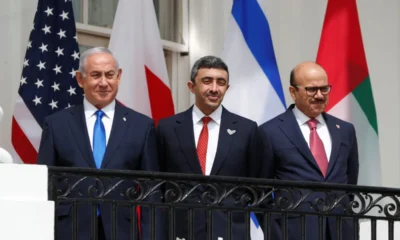
 Somaliland2 months ago
Somaliland2 months agoUAE, Bahrain, Morocco and Kazakhstan Hold Recognition Talks With Netanyahu
-

 Terrorism1 month ago
Terrorism1 month agoForeign ISIS Pipeline Exposed: Puntland Captures Dozens of Non-Somali Fighters
-

 Somaliland1 month ago
Somaliland1 month agoSomaliland at Davos: The Moment Somaliland Entered the World’s Inner Circle
-

 Terrorism4 weeks ago
Terrorism4 weeks agoAmerica Pulls Back From Somalia but Doubles Down Next Door
-

 Top stories2 months ago
Top stories2 months agoSomali Pirates Hijack Chinese Fishing Vessel off Puntland Coast


